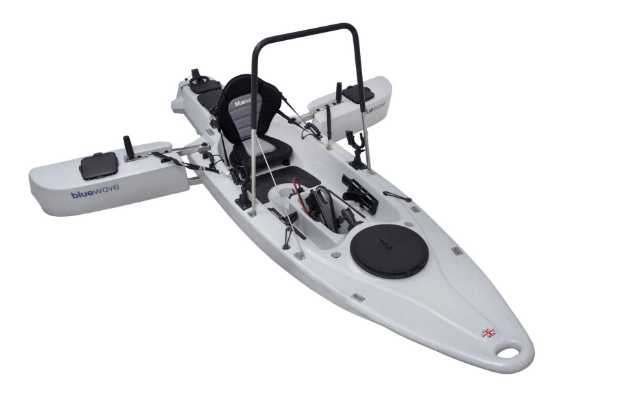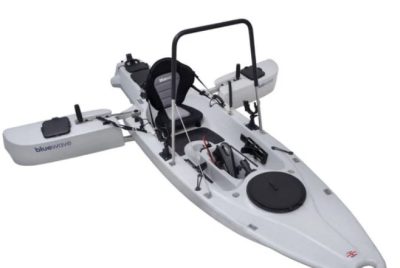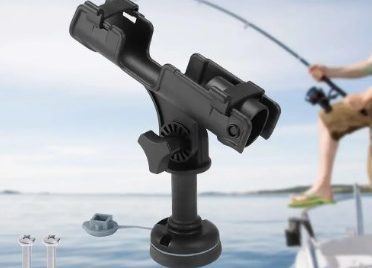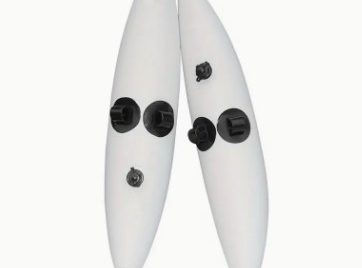Fishing Kayak Trolling Motor
As an avid kayak angler, I understand the exhilaration of gliding silently across the water, seeking the perfect catch in the tranquility of nature. In this comprehensive guide, I’ll delve into the world of fishing kayak trolling motors, sharing insights, tips, and personal experiences to enhance your fishing expedition.
Introduction
Brief overview of kayak fishing
Kayak fishing has grown into a beloved pastime, offering a unique blend of adventure and serenity. The agility of kayaks allows anglers to explore waters that larger vessels cannot reach, providing unparalleled access to prime fishing spots.
Importance of a trolling motor in enhancing the fishing experience
While paddling is an integral part of kayak fishing, a trolling motor introduces a new dimension. It brings silent, efficient movement, transforming your kayak into a stealthy vessel that maximizes your chances of a successful catch.
Types of Trolling Motors
Bow-mounted trolling motors
Mounted at the front, bow-mounted motors provide superior control and precision. They are ideal for anglers who prioritize accurate navigation and positioning.
Transom-mounted trolling motors
Positioned at the rear, transom-mounted motors offer simplicity and ease of use. They are a popular choice for those seeking straightforward installation and operation.
Engine-powered trolling motors

For covering extensive distances or tackling strong currents, engine-powered trolling motors deliver the necessary power and speed. They are a game-changer for those looking to explore vast fishing grounds.
Hand-controlled vs Foot-controlled options
Choosing between hand and foot controls is a matter of personal preference. Hand controls offer simplicity, while foot controls provide hands-free operation, allowing you to focus entirely on fishing.
Factors to Consider Before Buying
Kayak size and weight capacity
Selecting a trolling motor compatible with your kayak’s size and weight capacity ensures stability and optimal performance on the water.
Thrust power
Thrust power is a critical factor, influencing the motor’s ability to propel the kayak in different water conditions. Consider the size of the water bodies you plan to fish in when determining the required thrust.
Battery life and type
Long-lasting battery life is essential for extended fishing sessions. Choosing the right battery type ensures reliability and efficiency on the water.
Mounting compatibility
Ensure that the trolling motor is compatible with your kayak’s mounting system. This prevents unnecessary modifications and simplifies the installation process.
Control mechanism
Whether you prefer hand or foot controls, selecting a trolling motor with an intuitive and responsive control mechanism enhances the overall fishing experience.
Installation and Setup
Step-by-step guide for mounting

Embark on a hassle-free installation journey with a step-by-step guide. From attaching the mount to wiring the motor, this section covers every aspect to get you on the water quickly.
Wiring and battery placement tips
Proper wiring and battery placement are crucial for the efficient operation of your trolling motor. Learn the best practices to avoid common issues and ensure a smooth fishing trip.
Troubleshooting common installation issues
Encountering problems during installation is common. This section provides solutions to common issues, empowering you to troubleshoot and enjoy uninterrupted fishing.
Benefits of Using a Trolling Motor in Kayak Fishing
Silent and stealthy movement
Trolling motors offer a quiet and unobtrusive way to move through the water, minimizing disturbance and increasing your chances of a successful catch.
Precision and control in various water conditions
Navigate through tight spaces, control your position against currents, and approach fish with precision using the responsive control features of a trolling motor.
Energy conservation during long fishing sessions
Paddling can be exhausting, especially during lengthy fishing expeditions. A trolling motor conserves your energy, allowing you to fish for extended periods without fatigue.
Exploration of diverse fishing spots
With the help of a trolling motor, you can explore new and diverse fishing spots that may be inaccessible with traditional propulsion methods.
Maintenance Tips for Trolling Motors
Cleaning and inspecting the motor regularly

Regular maintenance ensures the longevity of your trolling motor. Learn simple cleaning and inspection routines to keep your motor in top condition.
Proper storage practices
Storing your trolling motor properly during off-seasons prevents damage and extends its lifespan. Follow these storage tips to ensure a trouble-free next season.
Troubleshooting common issues
Be prepared for common issues that may arise during use. This section provides troubleshooting tips to address issues promptly and get back to fishing.
Real-life Experiences and Testimonials
Success stories from kayak anglers using trolling motors
Explore inspiring success stories from fellow kayak anglers who have significantly improved their fishing outcomes with the help of trolling motors.
Challenges overcome with the help of trolling motors
Learn how anglers have overcome various challenges, such as strong currents or difficult-to-reach spots, thanks to the assistance of trolling motors.
Best Practices for Efficient Fishing with a Trolling Motor
Maximizing battery life
Discover strategies to extend the battery life of your trolling motor, ensuring it lasts throughout your fishing trip without unexpected interruptions.
Navigating through different water environments
Adapt your trolling motor usage to different water conditions. Whether in calm lakes or flowing rivers, these tips help you navigate effectively.
Utilizing the control features for strategic fishing

Unlock the full potential of your trolling motor by utilizing its control features strategically. Learn how to position yourself for the best possible fishing opportunities.
Comparison with Other Propulsion Methods
Paddle vs Pedal vs Trolling Motor
Compare the pros and cons of paddling, pedaling, and using a trolling motor to determine the best propulsion method for your kayak fishing style.
Pros and cons of each method
Understand the advantages and limitations of each propulsion method to make an informed decision based on your preferences and fishing goals.
Environmental Considerations
Minimizing the ecological impact of trolling motors
As responsible anglers, it’s essential to be mindful of the environment. Explore ways to minimize the ecological impact of trolling motors during your fishing expeditions.
Following fishing regulations and guidelines
Adhere to fishing regulations and guidelines to ensure ethical and sustainable angling practices while using a trolling motor.
Upgrading and Customization Options
Enhancing trolling motor performance
Explore options for upgrading your trolling motor to enhance its performance, adapting it to your evolving fishing needs.
Adding accessories for a personalized fishing experience
Customize your trolling motor setup with accessories that cater to your preferences, creating a personalized and efficient fishing experience.
Popular Brands and Models
Review of top-rated fishing kayak trolling motors

Explore reviews of popular trolling motors, considering factors like performance, durability, and value for money.
Budget-friendly options vs premium choices
Whether you’re on a budget or looking for top-of-the-line features, this section guides you in choosing the best trolling motor for your needs.
Safety Measures
Precautions for safe operation
Prioritize safety during your kayak fishing adventures. Follow these precautions to ensure a secure and enjoyable experience with your trolling motor.
Emergency procedures and equipment
Be prepared for unexpected situations with a guide to emergency procedures and essential safety equipment for kayak fishing with a trolling motor.
Community and Resources
Connecting with fellow kayak anglers
Join the vibrant community of kayak anglers. Discover forums, groups, and events where you can share experiences and learn from others.
Online forums, blogs, and educational resources
Explore online resources that provide valuable insights, tips, and educational content for enhancing your kayak fishing experience with a trolling motor.
Conclusion
In conclusion, a fishing kayak trolling motor opens up a world of possibilities for kayak anglers. From silent and stealthy movement to precise control in various water conditions, the benefits are undeniable. By considering factors like kayak size, thrust power, and battery life, and following best practices for installation and maintenance, you can elevate your kayak fishing experience to new heights.
FAQs
1. How long does the battery of a trolling motor typically last during a fishing trip?
The battery life of a trolling motor varies depending on factors such as thrust power, usage, and the type of battery. On average, a well-maintained battery can last several hours, providing enough power for a full day of fishing.
2. Can I use a trolling motor in saltwater environments?
Yes, many trolling motors are designed for both freshwater and saltwater use. However, it’s crucial to properly clean and maintain the motor after use in saltwater to prevent corrosion.
3. Are trolling motors difficult to install on a kayak?
While the installation process may seem intimidating at first, most trolling motors come with clear instructions, and with a bit of patience, it can be a DIY project. Following a step-by-step guide can simplify the process.
4. What is the difference between a hand-controlled and foot-controlled trolling motor?
The primary difference lies in the control mechanism. Hand-controlled motors are operated manually using a handle, providing simplicity, while foot-controlled options provide hands-free operation, offering greater convenience for some anglers.
5. Can I upgrade my trolling motor to increase its thrust power?
In some cases, upgrading certain components of a trolling motor can enhance its performance, including thrust power. However, it’s essential to check with the manufacturer for compatibility and guidelines before attempting any modifications.




